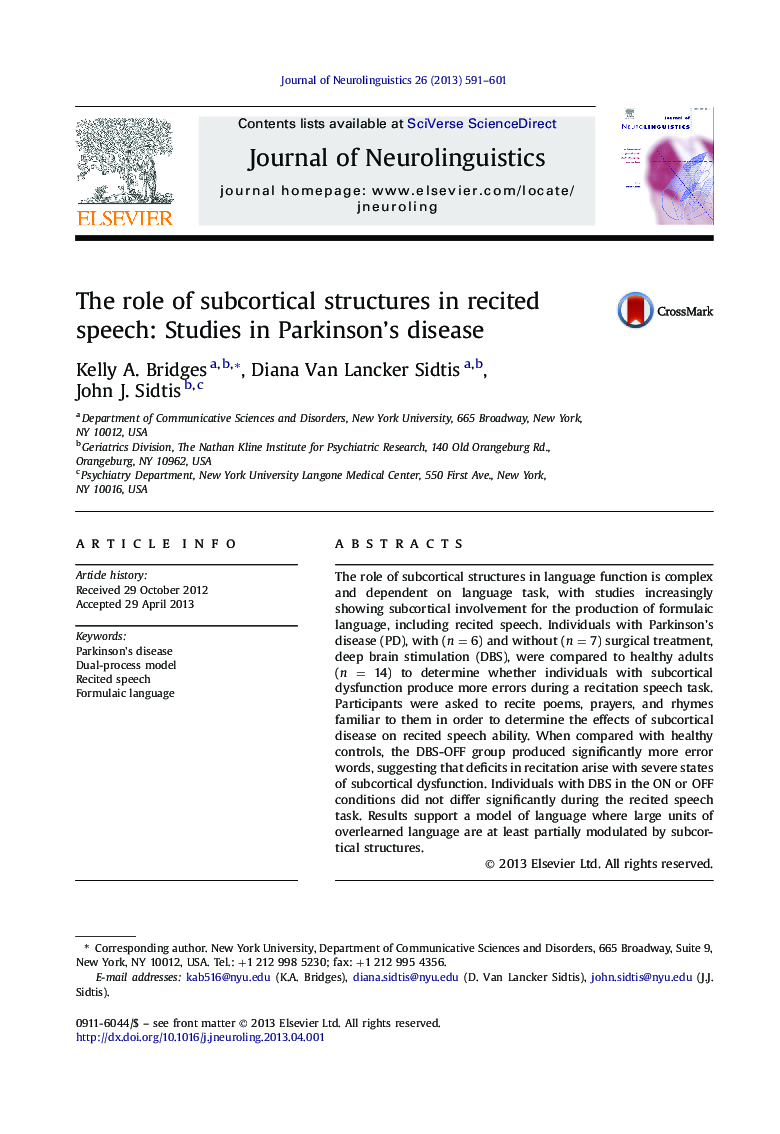| Article ID | Journal | Published Year | Pages | File Type |
|---|---|---|---|---|
| 911806 | Journal of Neurolinguistics | 2013 | 11 Pages |
•Recited speech is examined in people with Parkinson's disease (PD).•Adults with PD with DBS (ON and OFF) and without DBS were compared to controls.•DBS-OFF had more errors than healthy controls.•Results support the dual-process model of language production.
sThe role of subcortical structures in language function is complex and dependent on language task, with studies increasingly showing subcortical involvement for the production of formulaic language, including recited speech. Individuals with Parkinson's disease (PD), with (n = 6) and without (n = 7) surgical treatment, deep brain stimulation (DBS), were compared to healthy adults (n = 14) to determine whether individuals with subcortical dysfunction produce more errors during a recitation speech task. Participants were asked to recite poems, prayers, and rhymes familiar to them in order to determine the effects of subcortical disease on recited speech ability. When compared with healthy controls, the DBS-OFF group produced significantly more error words, suggesting that deficits in recitation arise with severe states of subcortical dysfunction. Individuals with DBS in the ON or OFF conditions did not differ significantly during the recited speech task. Results support a model of language where large units of overlearned language are at least partially modulated by subcortical structures.
